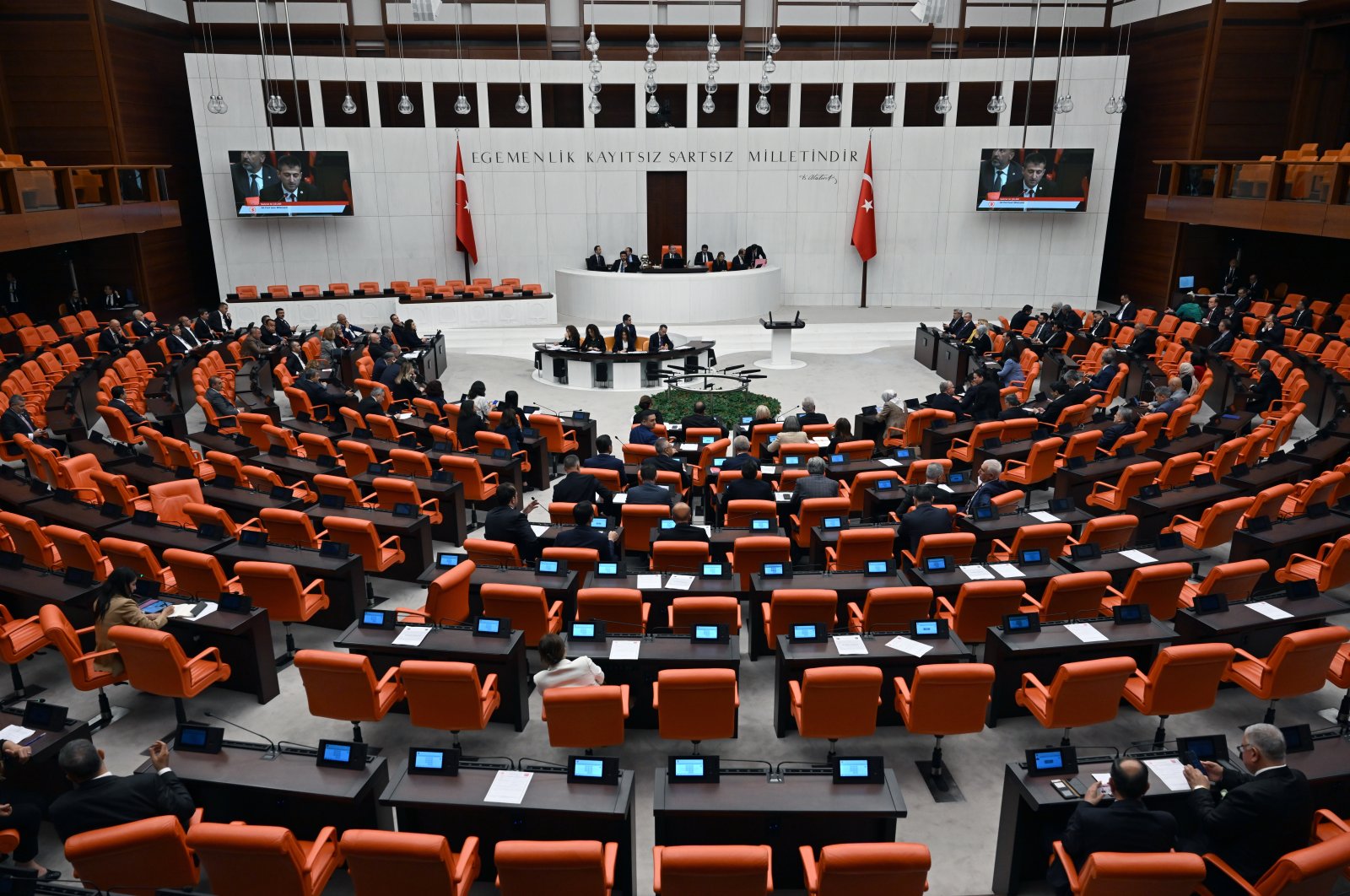Türkiye's push for new constitution gains momentum
Lawmakers are seen during a session at the Turkish Parliament, in Ankara, Türkiye, June 22, 2023 (AA Photo)
October 17, 2024 04:43 PM GMT+03:00
Türkiye continues to work on a draft of a new constitution. Recent discussions have brought the need for a new constitution to the forefront, as Türkiye continues to operate under the 1982 Constitution, drafted in the aftermath of the Sept. 12, 1980 military coup.
This document, shaped by the military influence of the era, lacks the characteristics of a true civilian constitution.
Support, opposition
- CHP’s Stance: The Republican People’s Party (CHP), Türkiye’s main opposition, has expressed support for the initiative. CHP Deputy Chairperson Gokcee Gokcen earlier emphasized the importance of a new constitution, arguing that continuing under the current coup constitution erodes trust in politics and perpetuates crises.
- Historical context: Efforts to draft a "civilian constitution" are not new. The 1982 Constitution was approved by nearly 92% in a public referendum but has been criticized over the years as a "coup-era constitution." Despite various amendments over the past 42 years, no government has successfully built a consensus for a new constitution.
- Collaboration: The new constitution initiative is expected to be conducted collaboratively by the Presidency, the Justice and Development Party (AK Party), and the Turkish Parliament. Opposition parties will be extensively consulted, with open channels for dialogue.
Why new constitution?
The driving factors behind the push for a new constitution can be summarized as follows:
- Civilian constitution: The need to draft a completely new civilian constitution through a participatory process.
- Authoritarian shadow: Persistent influence of the September 12 coup on the 1982 Constitution.
- Structural issues: The disruption of the constitution’s structure because of numerous amendments.
- Loss of coherence: Decline in coherence among the constitution’s many provisions.
Drafting process
- Current progress: A draft text has already been developed through workshops coordinated by the Presidency. The Nationalist Movement Party (MHP), a coalition partner of the ruling AK Party, has also prepared a draft comprising 100 articles.
- Next steps: The goal is to merge these drafts with suggestions from opposition parties and other societal groups to create a unified text. The AK Party plans to begin additional workshops in October, involving academics and legal experts.
Goals of new constitution
The new constitution aims to:
- Citizen-focused approach: Prioritize a citizen-focused, inclusive constitution that removes traces of the 1982 coup.
- Elimination of Tutelage: Dismantle the tutelary mindset and prevent crises similar to those involving the Constitutional Court in cases like Can Atalay and Osman Kavala.
- Judicial reforms: Prevent the Constitutional Court from becoming an overwhelmingly powerful institution and avoid the establishment of a judiciary-dominated regime. Allow appeals against decisions by the High Court of Appeals.
- Public participation: Encourage greater public involvement in the legislative process and ensure the Constitutional Court does not become the sole authority over state organs.
- Protection of freedoms: Strengthen protections for freedom of expression, with a focus on press, speech, and thought freedoms.
Parliamentary challenges
- Vote requirements: For the proposed constitutional amendment, 400 votes in the Parliament are required. The People’s Alliance, led by the ruling AK Party, holds more than 300 seats, which is insufficient to amend the constitution independently.
- Seeking consensus: To pass the amendment without a referendum, the support of 400 deputies is needed. At least 360 votes are required to submit the amendment to a referendum. The AK Party and its coalition partners are expected to engage with opposition parties again to secure the necessary consensus.
October 17, 2024 04:43 PM GMT+03:00
